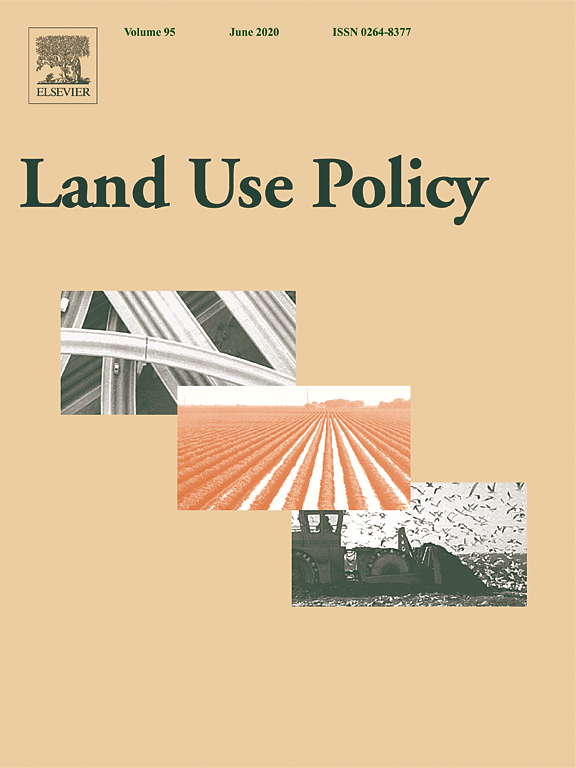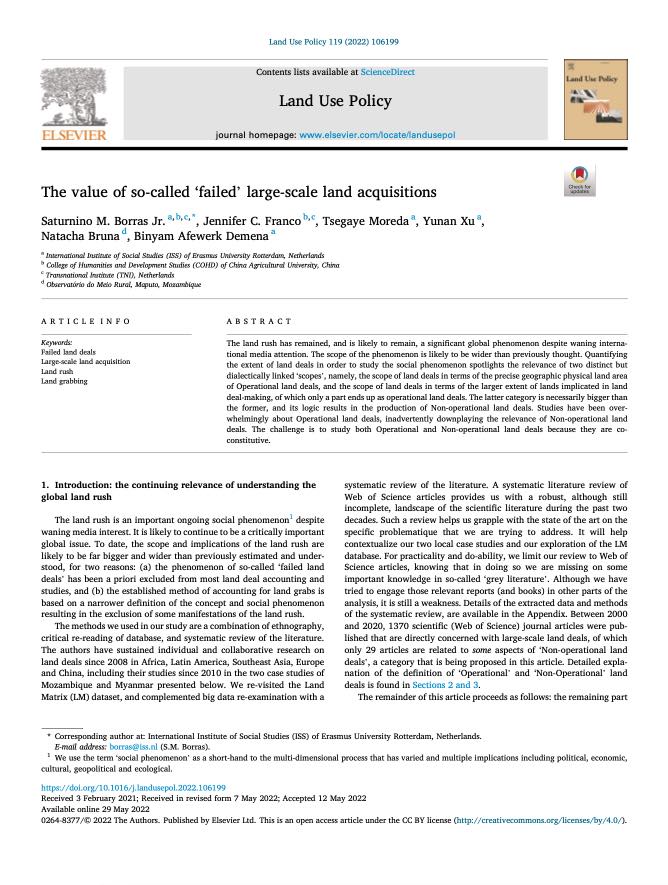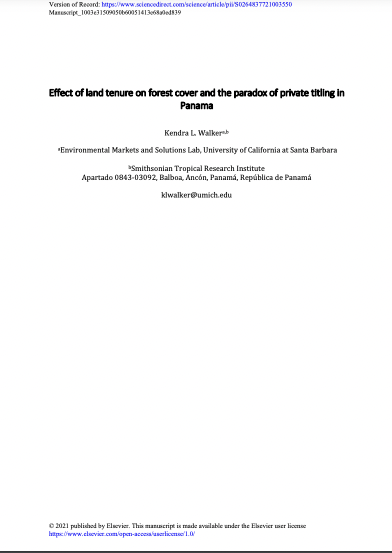Location
Land Use Policy is an international and interdisciplinary journal concerned with the social, economic, political, legal, physical and planning aspects of urban and rural land use. It provides a forum for the exchange of ideas and information from the diverse range of disciplines and interest groups which must be combined to formulate effective land use policies. The journal examines issues in geography, agriculture, forestry, irrigation, environmental conservation, housing, urban development and transport in both developed and developing countries through major refereed articles and shorter viewpoint pieces.
Land Use Policy aims to provide policy guidance to governments and planners and it is also a valuable teaching resource.
ISSN: 0264-8377
Members:
Resources
Displaying 1 - 5 of 279Adapted institutional analysis and development framework for understanding customary land institutions in sub-Saharan Africa – A case study from Nigeria
Customary land institutions (CLIs) are social institutions that define local land governance in communities. Strengthening community rights continues to be an essential land policy goal, and several studies have focused on ways to improve local land governance through CLIs. Relatively limited attention, however, has been paid to understanding these institutions in themselves.
The value of so-called ‘failed’ large-scale land acquisitions
The land rush has remained, and is likely to remain, a significant global phenomenon despite waning international media attention. The scope of the phenomenon is likely to be wider than previously thought.
Analysing land policy processes with stages model: Land policy cases of Ethiopia and Rwanda
Land policies are formulated with the goal of addressing land use management challenges. Therefore, a thorough investigation is required to assess effectiveness of land policy processes. The unknown land use policy effec[1]tiveness is how and where the formulation and identification of land use problems affect the throughput of policy implementation. The main objective of this paper is to assess the effectiveness of land policy processes using models of public policy analysis.
Reflections on the limited impact of the VGGT in Sub-Saharan Africa and opportunities for its future with lessons from Nigeria and Sierra Leone
The reality that significant improvements in security of tenure at scale in rural Africa are still needed nearly a decade after the adoption of the Voluntary Guidelines for the Responsible Governance of Tenure of Land;Fisheries and Forests (VGGT) suggests a need to explore its limitations and consider what it would take to realize its objectives. The article documents significant impacts of the VGGT reform processes and highlights illustrative or “one-off” results.
Effect of land tenure on forest cover and the paradox of private titling in Panama
Meeting sustainable development goals requires policies that account for interrelatedness in social and environmental issues such as land tenure and deforestation.






